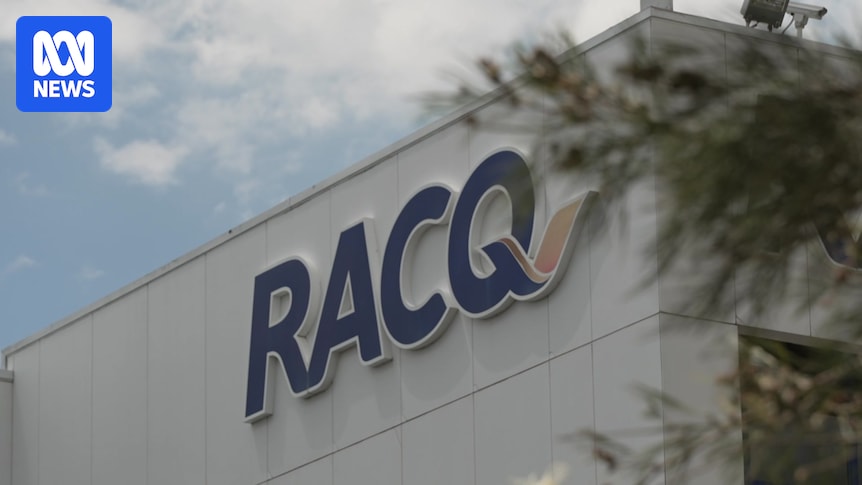The corporate watchdog has sued an insurer over sending out 570,000 renewal notices that it claimed did not properly compare new prices to earlier premiums.
In a Federal Court filing, the Australian Securities and Investments Commission (ASIC) claims the renewal notices sent to insurance customers of RACQ were false and misleading.
The lawsuit was prompted by an exclusive ABC report last year detailing how offer letters were comparing a new premium for an upcoming year against a “last period premium” — but the previous year’s number was not necessarily what a client paid.
That “last period premium” could exclude details such as discounts subsequently agreed after an initial quote.
Many insurers have increased prices in recent years. (ABC News)
Court documents filed by ASIC further alleged that despite customer-owned RACQ publicly stating last year that no clients had complained, it had actually received gripes years earlier including that renewal notices were “very misleading”.
Even staff had known of a problem in 2019, the lawsuit alleged.
‘People are struggling’
ASIC deputy chair Sarah Court told the ABC on Tuesday the case was important because consumers might not shop around if they read renewal notices and thought insurance was only rising minimally.
“We know that people are struggling with the price of their insurance premiums,” she said.
“What this conduct … did was effectively mislead customers as to the price increases for their premiums.”
One example cited by ASIC was of an RACQ customer, John Monks, receiving a renewal notice showing the “last period premium” for his Gold Coast home was $6,930.55 and new offer for “this period premium” of $7,033.57 — a 1.5 per cent rise.
ASIC deputy chair Sarah Court says many people are struggling with the price of insurance premiums.
But he had actually only paid $5024.18 in the previous year, after negotiating a discount. It meant the renewal was a 39.9 per cent rise.
Mr Monks, a gold card-carrying member of RACQ’s roadside assistance arm since 1964 and insurance customer since 2008, said the organisation’s handling of the matter was disgraceful.
RACQ, one of Queensland’s biggest organisations with 1.7 million members, was “extremely arrogant in dealing with loyal customers and simply refuse to listen”, he told the ABC.
Industry regulator looking into RACQ complaint over home insurance renewal prices
The period cited in ASIC’s lawsuit runs from September 2019 to December 2024, and covers products from home to boat and pet insurance.
RACQ said it would work with the regulator to finalise the lawsuit.
It had clarified renewal notices to reflect actual pricing changes, apologised and was “disappointed this has happened”.
A ‘serious compliance failure’
The Brisbane-based organisation said it had “self-reported” to the corporate regulator following the ABC’s queries on the renewal notices.
But the ASIC lawsuit alleged that prior to September 2019, when RACQ started issuing renewal notices listing the last period premium, that several staff members “knew that the ‘last period premium’ amount would not reflect policy and price changes made after the original premium offer”.
Within two days, a customer complained the comparison was “very misleading” ASIC alleged. More customer complaints emerged — even to an acting executive in 2019, ASIC claimed.
RACQ says it will work with the regulator to finalise the lawsuit. (ABC News)
Yet the renewal-notice problem was not escalated to RACQ’s internal committees until November last year, ASIC alleged.
RACQ had around that time issued a statement to the ABC saying that it had “not previously received any feedback that our communication [on renewals] has been an issue for our members”.
RACQ told the ABC on Wednesday that its previous media statements had been based on information held at the time, and it had following an internal review “identified historical complaints”.
The action is the latest ASIC case filed against insurers, which have had mixed results.
The biggest hit has been against insurers not passing on discounts to customers, with more than $800 million returned.
ASIC deputy chair Sarah Court said it was taking the matter seriously.
ASIC successfully sued insurers including RACQ and IAG — with documents in the IAG matter showing internal warnings about discounts were ignored for almost six years before being elevated to top ranks.
Ms Court said that “for whatever reasons … these issues are not getting escalated and dealt with”.
“This is a serious compliance failure,” she said.
RACQ’s insurance arm had proved an increasing millstone for the organisation, with complaints spiking again last year over rising prices and poor claims handling — in a previous year contractors on a repair job even robbed a customer.
Still, in the past year, the division posted an $127 million profit. That was partly linked to being able to release previously held capital and better investment returns.
The overall pressures though led to RACQ largely selling the insurance division to ASX-listed insurance giant IAG, whose brands include NRMA, in a $1 billion deal. The deal was only recently formalised.
Sources with knowledge of the companies thought any penalty from the ASIC lawsuit would rest with RACQ.
The level of any penalty sought is yet to be determined. RACQ paid a $10 million fine in 2023 for potentially misleading customers about pricing discounts.

